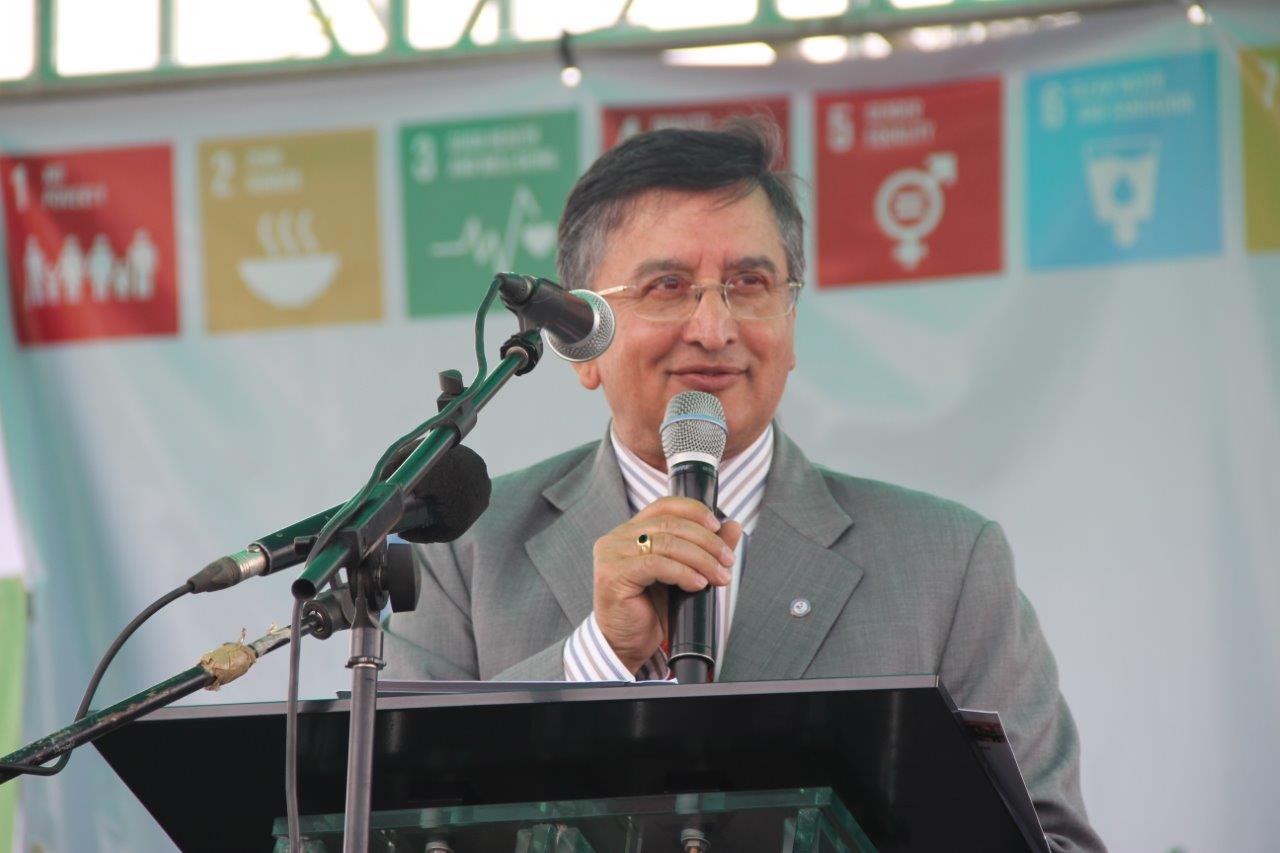The United Nations office in Zimbabwe has fully embraced the 2030 Agenda which pursues the Sustainable Development Goals (SDGs) as its roadmap for inclusive development.
The United Nations Team in Zimbabwe, in support of national development priorities and in partnership with development partners, has reiterated its commitments articulated under the 2016-2020 Zimbabwe United Nations Development Assistance Framework (ZUNDAF).
“The United Nations, through the ZUNDAF, continues its support in poverty reduction, advancing good governance and gender equality, and enhancing service delivery in education, health, water and sanitation, protection,and food and nutrition security.
“Greater allocation of national budget on social services, acceleration of reform efforts to bring new investments to the country for sustainable and inclusive socio-economic growth, and continued development partners’ financial and technical support is critical to the achievement of the Sustainable Development Goals (SDGs) in Zimbabwe,” the UN said Wednesday.
When Zimbabwe was faced with two consecutive years of severe drought (2015-2016), the United Nations heeded the Government’s call for assistance. Thanks to effective Government and UN coordination efforts and the generous financial and in-kind contributions of development and humanitarian partners, the active role of non-governmental and civil society organisations, and the resilience of communities, Zimbabwe has emerged from the drought.Throughout its humanitarian, as with its development work, the United Nations has been guided by the principles of humanity, impartiality, neutrality and independence.
Owing to the successful concerted efforts, the country’s focus has now been re-balanced to medium to long term development in line with its development agenda and the SDGs. The UN is following suite.
Together with the Global Fund to Fight AIDS, Tuberculosis and Malaria and other partners, the UN is supporting national efforts to combat new HIV infections and renewed efforts at eradicating TB and malaria, through a continued emphasis on education and prevention efforts, while providing treatment, care and support.
In response to national programmes to improve food and nutrition security at national and household levels, the UN is supporting the Government in formulating relevant policies to guide agricultural growth, forestry and fisheries management and more effective use of land resources; implementing field programmes to increase agricultural production and competitiveness and to reduce malnutrition; and productivity; and building resilience through promotion of climate smart agriculture and providing food assistance for asset creation and maintenance.
Efforts are ongoingto promote gender empowerment and equity by addressing the fundamental problems that underlie women’s limited representation in national decision making bodies, access and ownership over productive resources, early pregnancy, child marriages, concerns around gender-based violence, and unacceptable high maternal mortality ratio.
The ZUNDAF has been instrumental in complementing national efforts to stabilize and sustain the provision of socialservices: health, education, water and sanitation, protection and promotion of human rights.
To build a solid foundation for a prosperous and stable society, a national resilience framework has been developed and resilience programmes have been rolled out to improve disaster risk management, and provide vulnerable communities with income generating opportunities (both on and off farm), markets and value chains, services delivery and community-based natural resources management.
The UN has been providing support in the areas of skills development and the promotion of decent work for all, including young people with an overall objective of nurturing a productive, skilled and competitive labour force. A national employment policy framework will play a critical role to coordinate and support livelihoods and job creation initiatives in key sectors of the economy.
These investments in health, education and skills development are helping Zimbabwe harness the demographic dividend, a window of opportunity that is currently open.
The UN noted that there is need for doubling efforts on adolescent sexual and reproductive health, achieving standard class size and proportion of pupil to teacher ratio as well as enhancing water and sanitation facilities to ensure the well-being of children, particularly the girl child. This should be coupled with the strengthening of citizen participation in the democratic process, and promotion of human rights.
Achieving quality education for all and investing in skills development of young people is a prerequisite for productive and sustainable jobs. Without quality, affordable and accessible education and requisite skills development, development goals risk remaining just that – goals.
With the reopening of the schools and as the country gears towards the 2018 harmonised national elections, there is need by all stakeholders to carry out their responsibility to sustain service delivery and ensure that schools remain safe spaces, free of violence and political activities, so that children can learn, grow, and develop to their fullest potential.
The UN rallied all stakeholders to work together to create an environment that would allow for peaceful elections, with respect for freedom of peaceful assembly and association. They said the safety and security of vulnerable groups, especially women and girls, must be ensured at all times.
“The United Nations remains committed to supporting Zimbabwe to achieve the SDGs, under the overall guiding principle of leave no one behind, particularly to the vulnerable communities.
“In this regard, the UN calls on all stakeholders to continue to support these vulnerable communities with the provision of social services, building and strengthening of their resilience to climate change and livelihood opportunities to play their role in building a prosperous and sustainable Zimbabwe.”
